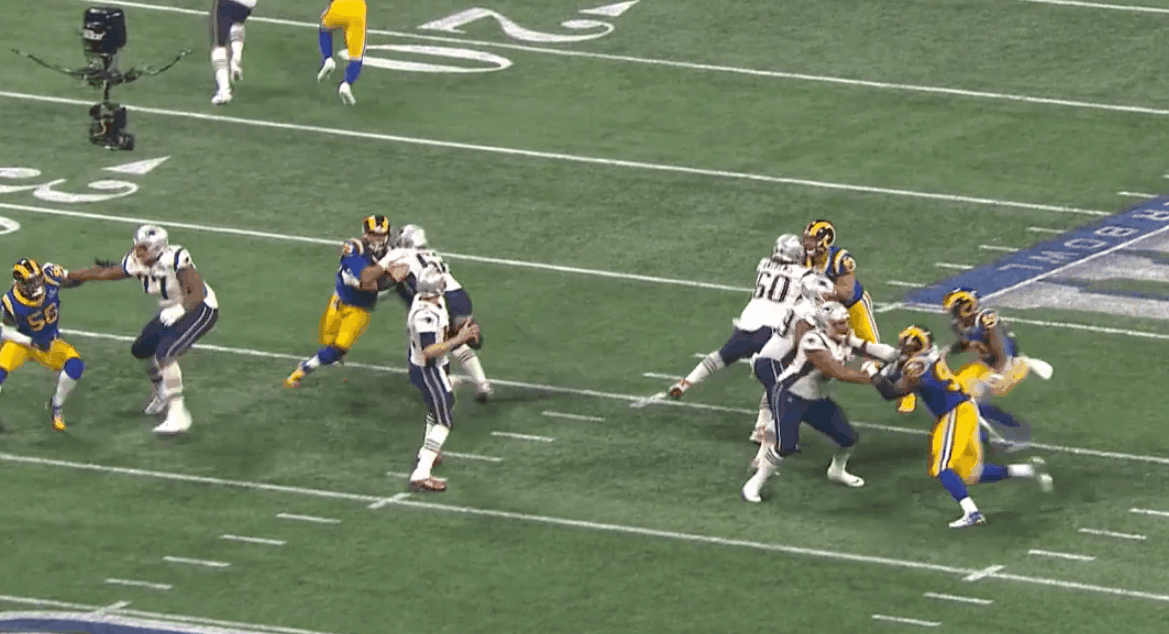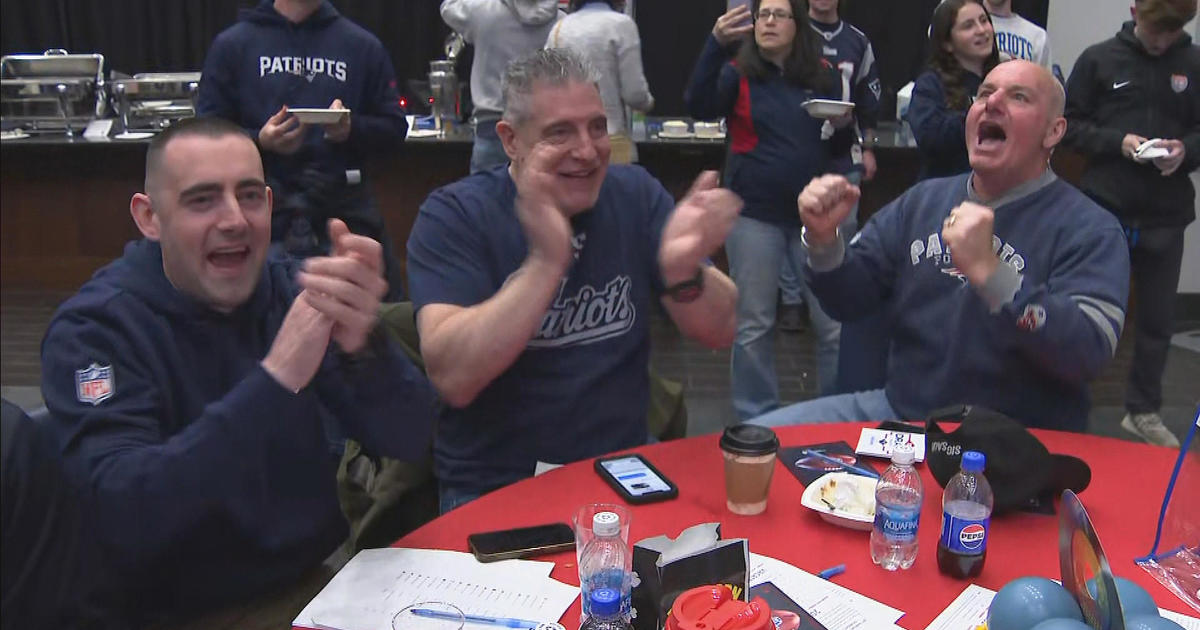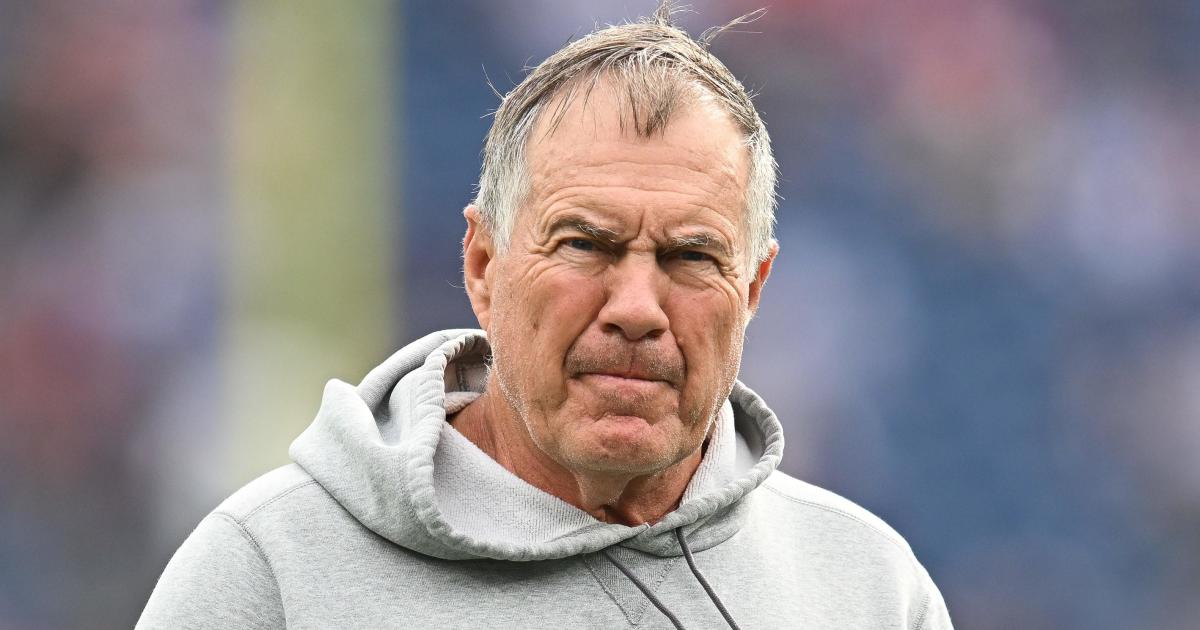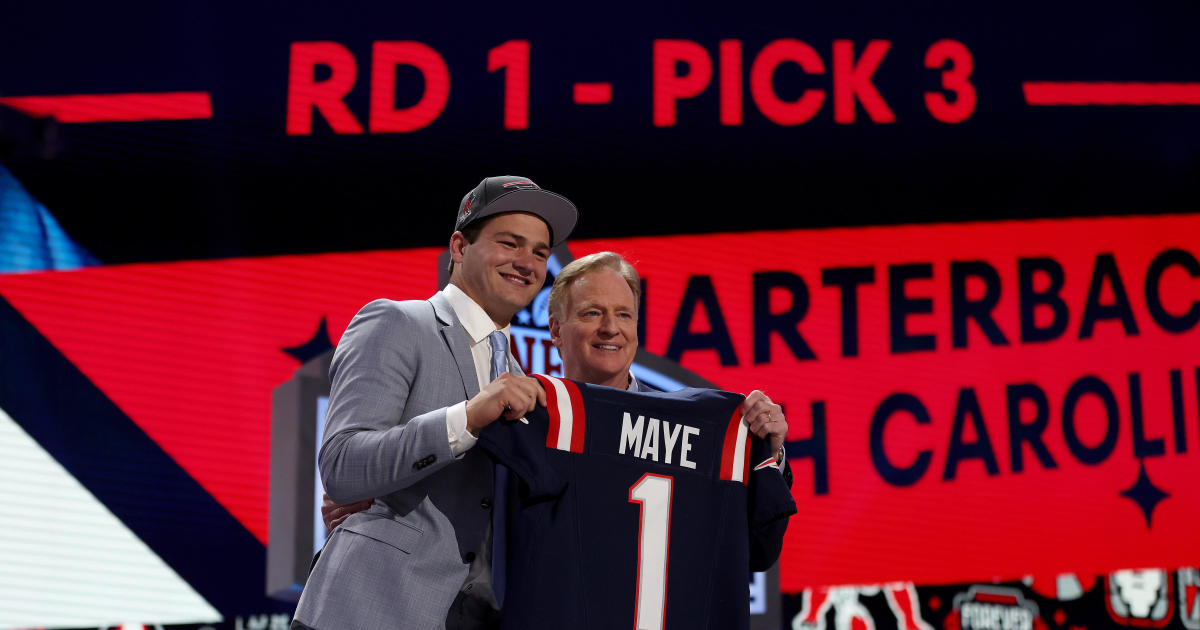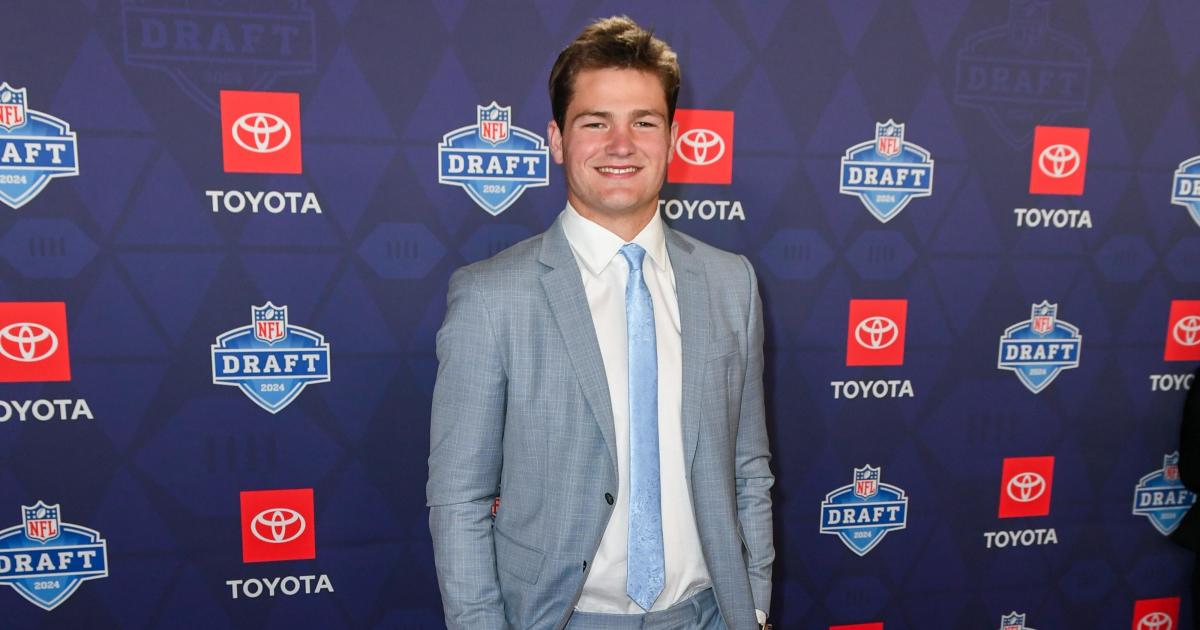Can Everybody Stop Scapegoating Rob Gronkowski For Patriots' Poor Planning At Tight End Last Year?
By Michael Hurley, CBS Boston
BOSTON (CBS) -- It's happened a lot. It happened again yesterday.
Rob Gronkowski got blamed for the fact that the Patriots had one of the worst tight end situations in the NFL last year.
It's not right.
Most recently, it was ESPN's Adam Schefter who, while speaking about Tom Brady's contractual decisions that loom in the coming six weeks, repeated a commonly held belief that Gronkowski submarined any hope the Patriots might have had at building a decent tight end group in 2019 by announcing his retirement after free agency began.
"Last year, Rob Gronkowski wound up retiring in late March. Now I don't know the conversations they did and didn't have before, but New England missed the window on free-agent tight ends," Schefter said Thursday on ESPN. "So I don't think that they're going to let Tom Brady go to free agency, all of a sudden sign with Team X, and then on March 20 say, 'Well what will we do at quarterback now?' That's not the way that that organization operates."
Schefter is merely the latest person to trumpet this concept, as it's become a rather commonly held belief.
It should probably stop, though.
Consider the timeline.
Gronkowski announced his retirement on March 24. The legal tampering period was March 11-13, and free agency officially began on March 13. By that timeline, sure, the late announcement put the Patriots behind the eight ball.
But Gronkowski's retirement did not come out of nowhere. He had flirted with the idea going back 13 months at that point, as he contemplated retirement after the Super Bowl loss to the Eagles. Gronkowski then spent that offseason skipping voluntary workouts and holding motocross press conference inside the walls of Gillette Stadium while his teammates were working out. Bill Belichick reportedly tried to trade him to Detroit. Eventually, Gronkowski had a come-to-Belichick moment, and he agreed to return for one more go-round in 2018.
Few people expected Gronkowski to play beyond the 2018 season. After the silliness that ensued during the spring that year, Bill Belichick had to have been one of them.
Additionally, the Patriots decided in early march to release tight end Dwayne Allen. Allen carried a cap hit close to $5 million in 2017 and closer to $4 million in 2018. By releasing him, they saved more than $7 million in cap space. By releasing Allen, the team knew that it would need to add a tight end, considering Stephen Anderson, Jacob Hollister and Ryan Izzo were the lone tight ends on the roster behind Gronkowski. Surely, a tight end depth chart with Gronkowski (who had a major drop in production in 2018) and those three players would not have been satisfactory.
Additionally, more than a month after Gronkowski retired, the Patriots went ahead and traded Hollister away to Seattle. Their haul for trading away one of their few tight ends? A 2020 conditional seventh-round pick. For a team that was supposedly blindsided by the retirement of Gronkowski, trading a tight end away for next to nothing a month later was an odd course of action.
And additionally, there was this little event in April called the NFL Draft. The 2019 draft class was chock full of talented tight ends. The Patriots picked zero of them.
T.J. Hockenson went eighth overall, meaning the Patriots didn't really have a shot to select him. Same goes for Noah Fant, who was picked at No. 20. But the Patriots could have picked Irv Smith Jr. out of Alabama (No. 50 overall), or Drew Sample out of Washington (No. 52), or Josh Oliver out of San Jose State (No. 69), or Jace Sternberger out of Texas A&M, who lasted all the way until the 75th overall pick.
There was also Kahale Warring out of San Diego State (No. 86) and Dawson Knox out of Ole Miss (No. 96). Eight more tight ends were selected in rounds four through seven, with the Patriots passing on all of them.
Ben Watson ended up being the Patriots' top receiving tight end, amassing just 173 receiving yards without catching a touchdown. Matt LaCosse had 131 yards and one score, while Izzo had 114 yards and a touchdown.
Six rookie tight ends had more receiving yards than any Patriots tight end. Foster Moreau (selected 137th overall out of LSU by Oakland) had five touchdowns. Knox had 388 yards and a pair of touchdowns. Kaden Smith (selected 176th overall out of Stanford by the 49ers) had 268 receiving yards and three touchdowns.
After the draft, the Patriots signed just one undrafted rookie at tight end -- Andrew Beck out of Texas. Despite guaranteeing him $100,000, he didn't make the final roster.
Surely, considering the draft took place a month after Gronkowski retired, it might have been wise for the Patriots to have selected one of those players. If not, the blame should not be placed on Gronkowski's retirement for the Patriots' decision to pass on all of those tight ends; it was a decision made independent of Gronkowski's retirement by Belichick and Nick Caserio.
That the Patriots only got measurable contributions from three of their 10 draft picks in their rookie seasons could also be considered in this evaluation.
Additionally, at no point did Gronkowski's uncertain status completely hinder the Patriots in their potential pursuit of any free-agent tight ends. They reportedly went after Jared Cook, who initially didn't want to join the Patriots if he was going to get the Dwayne Allen treatment as Gronkowski's backup. But after Gronkowski's announcement, the Patriots made a second push to sign Cook, even though he was close to finalizing a deal with the Saints. Cook chose to play elsewhere, and considering he caught nine touchdowns, it would be difficult to say he made the wrong one.
You need not only focus on the 2019 draft, too, because the Patriots have not tried at all to draft really any tight ends of significance for a very long time. Since drafting Gronkowski and Aaron Hernandez in 2010 and then shaping their offense to rely heavily on the position, the Patriots have drafted exactly three tight ends to keep the cupboards full: Ryan Izzo (seventh round), A.J. Derby (sixth round), and Lee Smith (fifth round). Smith (largely a blocoking tight end) never played a down for New England. Derby had zero receptions with the Patritos (and just 40 in his three-year career), and Izzo has six career receptions.
To say the Patriots have not prioritized the tight end position whatsoever in the draft for nine years would be a supreme understatement.
Outside of the draft, the likes of Scott Chandler, Michael Hoomanawanui, Tim Wright, Alge Crumpler, Daniel Fells, Matthew Mulligan, Michael Williams, Matt Lengel, James O'Shaughnessy, and Clay Harbor all failed to really turn into any reliable receiving threat at the position.
The Patriots did add the undrafted Hollister to the roster in 2017, but the team clearly didn't like what they saw out of him, as he caught just eight passes (on 16 targets) for 94 yards over two seasons before shipping him away for the lowest return a team could receive in a trade. Hollister ended up catching 41 passes for 349 yards and three touchdowns in 11 games played for Seattle this season, providing yet another second-guess for the Patriots' strategy at tight end.
Prior to Gronkowski's retirement, the team had signed LaCosse. After the retirement, the team signed ... Austin Seferian-Jenkins, who never really showed up in Foxboro and then stepped away from football. They also signed ... Lance Kendricks, who got popped for PEDs, then got cut, then didn't play in the NFL. They traded a seventh-round pick for Eric Saubert, who didn't make the team. They then lured Watson out of retirement, even though he'd be facing a four-game suspension, to play in a season where he turned 39 years old. In the middle of the season, they signed Eric Tomlinson to block for two games.
Outside of the guys they signed, Tyler Eifert was available, but he was a major question mark after missing 52 games over the previous five seasons.
Suffice it to say, outside of Cook, there weren't too many impact free agents available at the spot. That reality, too, is not Gronkowski's fault.
If this has all been a bit lengthy, then allow it to be summarized into the following brief:
--Gronkowski's retirement was not a surprise. He had discussed it for more than a year.
--Gronkowski's production was almost cut in half year-to-year from 2017 to 2018, so relying on him to play at his former All-Pro level would have been unwise anyway.
--The Patriots released Dwayne Allen and traded Jacob Hollister.
--The Patriots decided to not draft a single tight end in 2019, extending a nine-year stretch of ignoring the tight end position in the draft.
--The Patriots struck out when trying to sign the one impact tight end available as a free agent.
Long story short, the Patriots had a very bad plan for tight end in 2019. That would have been the case even if Gronkowski had decided to stick it out for another season of football. By the end of the season, the Patriots ranked dead last in tight end receptions, 30th in tight end receiving yards, and tied for last in tight end touchdowns. Gronkowski with another year of wear on his tires would not have single-handedly saved them from that fate.
Gronkowski thought about retiring following the 2017 season, but decided to play one more year. Along the way, he came up with a game-winning catch against the Chiefs in the regular season, a couple of massive catches in an AFC title game victory, and the Super Bowl-sealing diving catch, a play that should be remembered forever in football history.
The sixth Lombardi sitting in a case in Foxboro is not there without the contributions of No. 87.
The man took an absolute beating during his nine-year NFL career. He doesn't need to absorb any more abuse as a scapegoat for the team's poor planning at the tight end position.
Read more from Michael Hurley by clicking here. You can email him or find him on Twitter @michaelFhurley.
